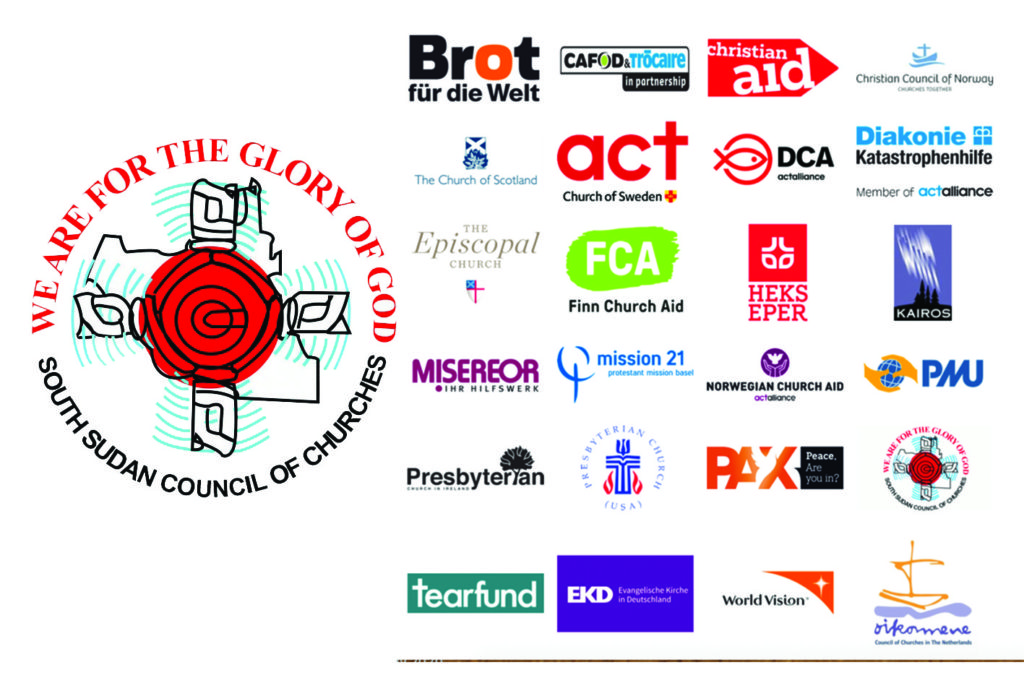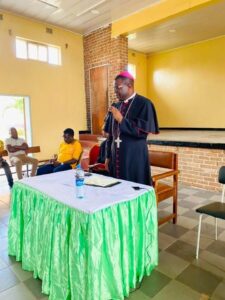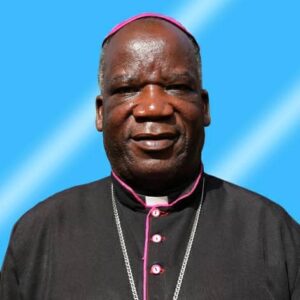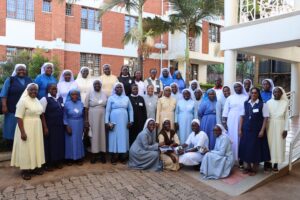SOUTH SUDAN: “Speed Up Implementation of Peace Agreement, Say Council of Churches on International Day of Peace

Christian Churches in South Sudan
Sr. Jecinter Antoinette Okoth, FSSA
On International Day of Peace celebrated September 21, for all humanity to commit to peace above all differences and contribute to building a culture of peace, Church leaders in South Sudan have appealed to government to speed up the process of peace agreement which was signed on 12th September 2018 aimed at ending the conflicts in the country and restoring peace.”
“South Sudan Council of Churches (SSCC) urges the political parties especially the signatories to the Revitalized Agreement for the Resolution of the Conflict in South Sudan (R-ARCSS) to recommit and speed up the implementations of the provisions in the agreement and the non-signatories to recommit to the Rome Declaration mediated by the Community of Sant’Egidio,” reads in part the SSCC statement signed by leaders from seven- member churches including the Catholic Church’s Archbishop Stephen Ameyu Martin.
The Church officials have emphasized on the slow implementation of the agreement that “only continues to deteriorate the already dire conditions of the ordinary South Sudanese.”
“It is with great concern that we observe the slow implementation of the peace agreement by the signatories,” the Church leaders said .
They further observation, “Chapter 1 and 2 are barely fully implemented, there are some pockets in the violations of ceasefire agreements, and the rampant inter communal revenge violence and cattle raiding which continues to destabilize communities across the country.”
They voiced the economic state of the country due to instability saying, “The South Sudanese currency continues to lose value at an alarming rate, making it hard for the ordinary South Sudanese to afford basic needs in the markets.”
“As we all know, “a hungry person is an angry and desperate person,” the Church leaders expressed noting that an angry person normally thinks of “evil and taking the law in (the) hand.”
According to the Church officials, “The implementation of this peace agreement for the common children of God means silencing the guns, an end to sexual gender based violence, sleeping in peaceful communities without the fear of being killed or robbed, recovery of economy, protection of children and women (and) development of inter and intra states infrastructure.”
Besides the slow implementation of the peace agreement, the Church in South Sudan has appreciated the positive steps already realized including “the formation of Revitalized Transitional Government of National Unity (R-TGONU), the agreement on the number of States, the appointment of State Governors, and the steps towards the training, unification and deployment of the National army.”
Meanwhile talking to the theme of the 2020 International Peace Day “Shaping Peace Together,” Christian organizations and members of the Ecumenical Network on South Sudan (ENSS) have echoed the message of the SSCC appealing for peace to reign in the nation.
“For peace to take place in South Sudan, the implementation of the Revitalized Agreement on the Resolution of Conflict in South Sudan (R-ARCSS) should be a key priority for all parties to the conflict and any other competing interests should be put aside,” the statement signed by 24 Christian organizations reads in part.
“We thus call on the Government of National Unity of South Sudan and all the parties who signed the R-ARCSS to implement the outstanding items to support a lasting peace,” the Ecumenical organizations noted adding that they “recognize the need to strengthen the efforts to bring on board the parties that are non-signatories to the R-ARCSS as this continues to present challenges to realizing peace across the country.”
The Members of ENSS appreciated the role of the churches and other groups in peacebuilding and bringing communities together in South Sudan.
“Despite the devastating conflict in South Sudan, there are various actors in South Sudan who are undertaking invaluable peacebuilding work to shape peace together at local level – these include local peace activists, churches, faith-based organizations, women’s groups, community leaders and NGOs, who use a myriad of methods to bring communities and individuals together and restore relationships,” reads the statement dated Monday, September 21.


